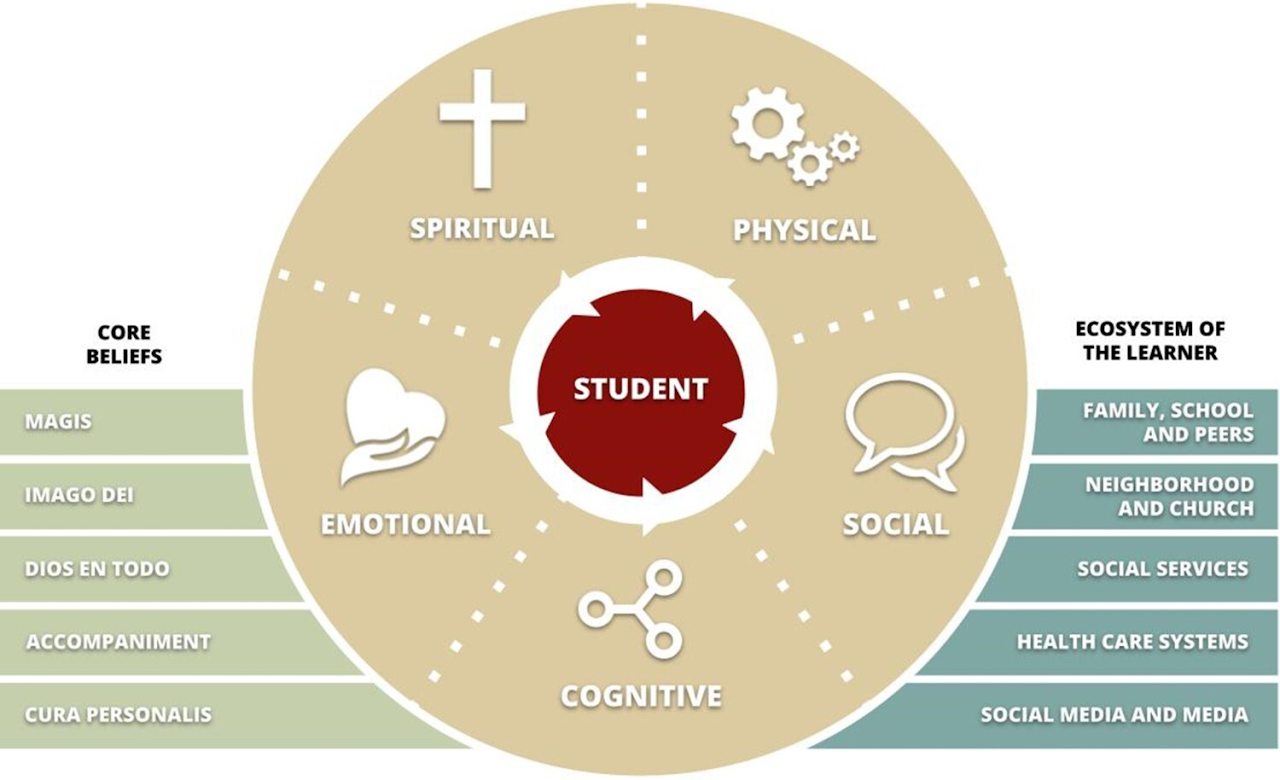Wellbeing for learning
Wellbeing and learning are inextricably linked. The overall health and happiness of a student directly impacts their ability to absorb and retain information.
A positive state of wellbeing fosters an environment:
- where students feel safe, valued and motivated
- that connects them to community
- where they engage more deeply with their studies.
Emotional stability and a sense of security provide:
- the mental space necessary for creativity and critical thinking
- the physical health that supports sustained focus and energy levels.
A well-rounded approach to education that addresses social, emotional and spiritual needs cultivates resilience and perseverance. These remain essential traits for academic success.
By prioritising wellbeing, educators create a foundation for holistic development. They ensure that students have the knowledge, skills and confidence to thrive in all aspects of life.
The first educators of their child
"The first and primary educators of children are their parents."
- Cf the address of Pope Paul VI to the National Congress of Diocesan Directors of the Teachers' Organizations of Catholic Action, Insegnamenti, I, 1963, p. 594
"When parents and schools work together to support learning, children tend to do better in school, stay in school longer and like school more."
- Donna Cross, Chief Behaviour Advisor for NSW Schools
This underscores the crucial role of a strong partnership between parents/carers and schools. Fostering a supportive educational environment benefits the child's overall development.
What is wellbeing?
Wellbeing can be defined as:
"... a sustainable state of positive mood and attitude, resilience and satisfaction with self, relationships and experiences."
- Australian Catholic University and Erebus International (2008) Scoping study into approaches to student wellbeing.
Catholic education aims to support children and young people across all areas of life – mental, social, emotional, physical and spiritual – so that all students ‘may have life and have it to the full’ (John 10:10).
Wellbeing framework
- Catholic schools play a significant role in supporting the development of young people’s wellbeing.
- The belief that the student is sacred lies at the heart of a distinctly Catholic wellbeing framework.
- We place the student at the centre of a holistic approach to education, surrounded by the five domains that encompass all their needs: physical, cognitive, social, emotional and spiritual.

"The dotted lines of this framework purposefully indicate this intersectionality between domains and challenge us to be mindful of the influence one domain has on another*."
CSNSW Network Groups
Our Wellbeing team oversees specialist inter-diocesan network groups in the areas of:
- child protection and safeguarding
- student attendance
- mental health (Heads of School Counselling)
- chaplaincy
- road safety.
It also offers case consultation and other support on request. The network groups meet once a term to discuss:
- current issues of concern
- opportunities for collaboration
- duty of care requirements
- how to proactively respond to emerging issues.
In response to current and emerging issues, we have developed the following system-wide guidelines:
- Managing suicidality and non-suicidal self-injury (2022)
- Managing problematic sexualised behaviour (2020)
- Managing student violence and assessing risk (Part 5A of the NSW Education Act).
We developed these guidelines in conjunction with senior staff from across the dioceses.
Links
Australian Student Wellbeing Framework
*McMahon, M. Wyttenbach, M. (2023): A Distinctly Catholic Approach to Educating the Whole Child.
